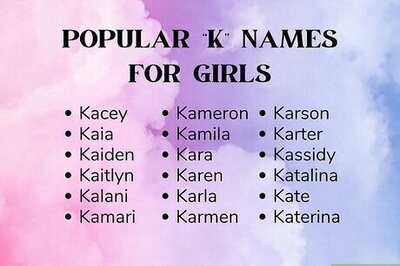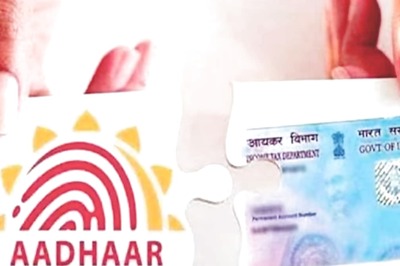
views
New Delhi: The Central government on Wednesday admitted in the Supreme Court that Aadhaar card holders’ data were indeed leaked, but maintained that there was no leakage by the Unique Identification Authority of India (UIDAI).
Arguing for the government, advocate Arghya Sengupta told a bench led by Justice A K Sikri that the leakage was by various other government departments and state agencies. Sengupta said the leakage might have occurred on account of balancing transparency and data protection concerns.
As Justice Sikri pointed out that there were reports in the newspapers even on Wednesday about leakage of Aadhaar data, Sengupta said there could be some errors here and there and some IDs were perhaps issued in the names of ‘Hanuman’ and dogs but UID remains the most sophisticated and authentic biometric system.
“There is no absolute right to informational self-determination,” said Sengupta as he added the issue was not about discriminating between people on the basis of their having Aadhaar, but the purpose for UID was to prevent de-duplication and to ensure targeted delivery of services to the identified sections.
Stating that no enactment could solve a problem in entirety, the lawyer contended that only individuals and not companies were required to have Aadhaar since individuals were the first target. “Tomorrow, we may replace PAN with Aadhaar if such a need arises,” he added.
Senior lawyer Shyam Divan, who represents the PIL petitioner in the matter, rebutted Sengupta’s argument, saying it was not enough for the Centre to say that UIDAI was not leaking data. “In the eyes of citizen, all state authorities are State anyway,” he asserted.
Appearing for retired Major General S G Vombatkere and social activist Bezwada Wilson, Divan questioned how the Finance Act could make getting Aadhaar mandatory when the Aadhaar Act said obtaining UID was completely voluntary.
“This scheme makes whole-time surveillance – from cradle to the grave – possible. This is perhaps the worst project possible under our Constitution. Entire architecture of Aadhaar is worthless as far as information security is concerned. We are concerned with one-seventh of the total population of the world in the wake of a scheme where degree of invasion is extremely high and protection much low,” said Divan.
He said nobody can tell him not to make a big deal of concerns about a person’s rights. “Civil rights movement was started by a woman who was made to sit at the back of a bus. Nobody asked her to make a big deal of this,” added Divan.
The arguments in the case remained inconclusive and would resume on Thursday.


















Comments
0 comment